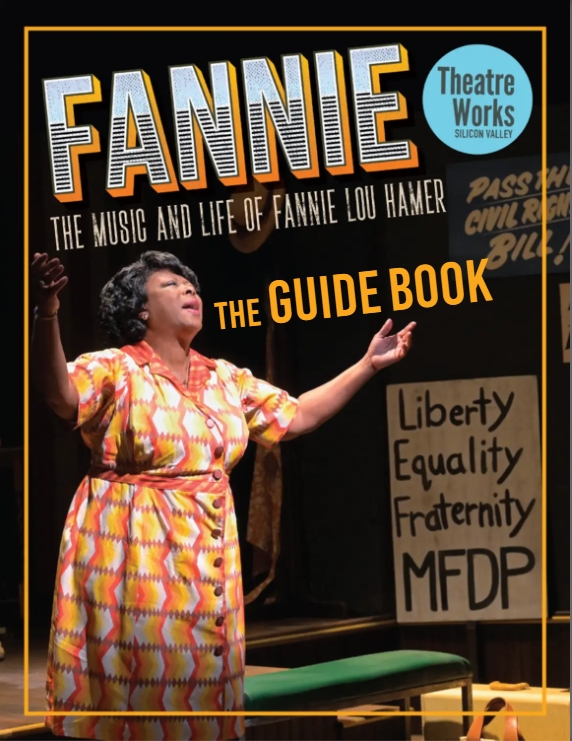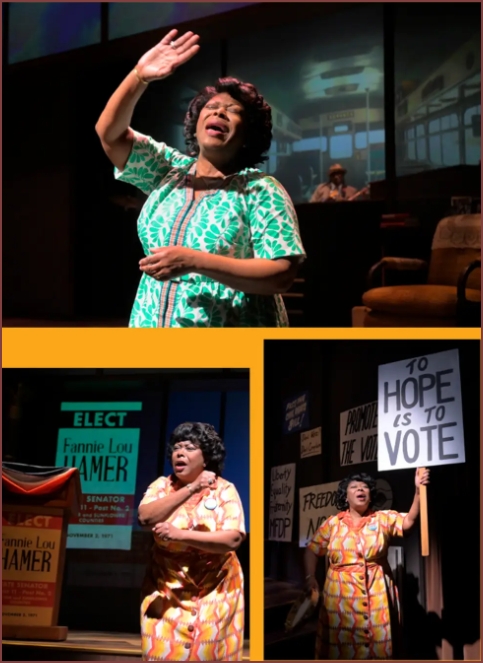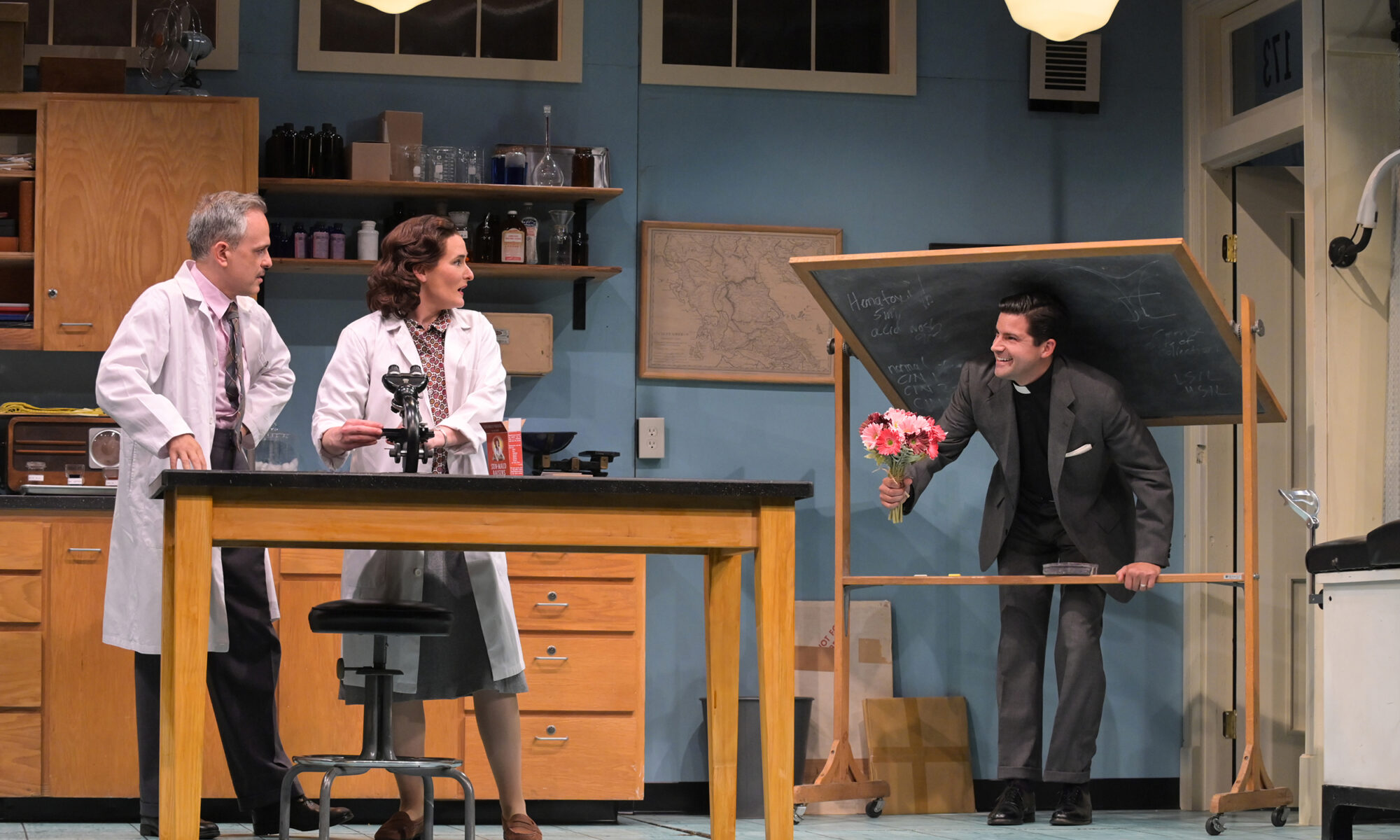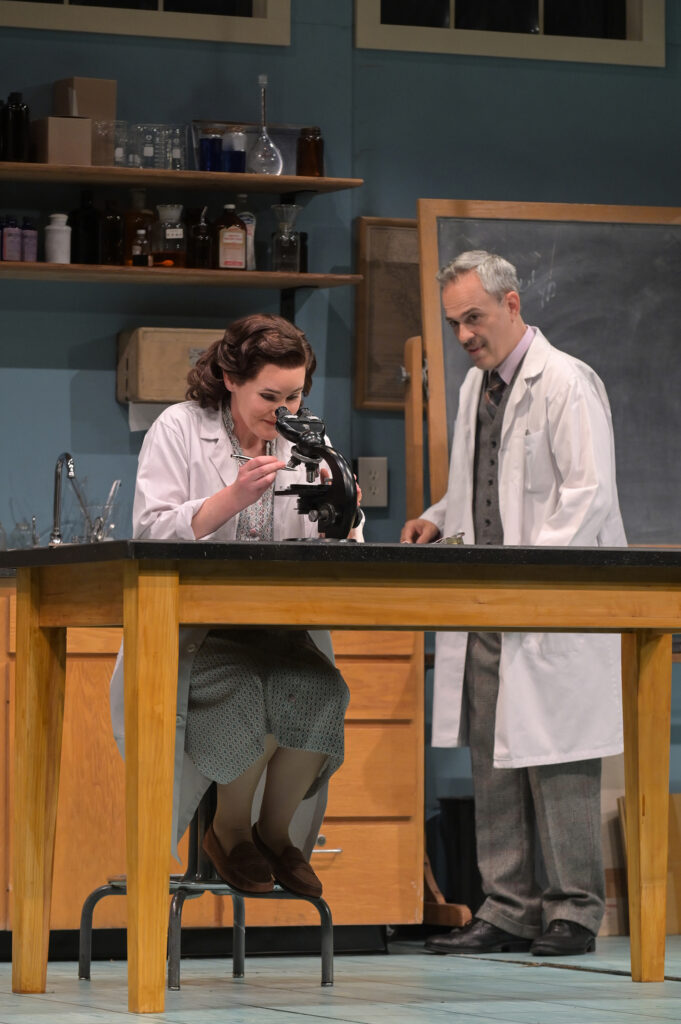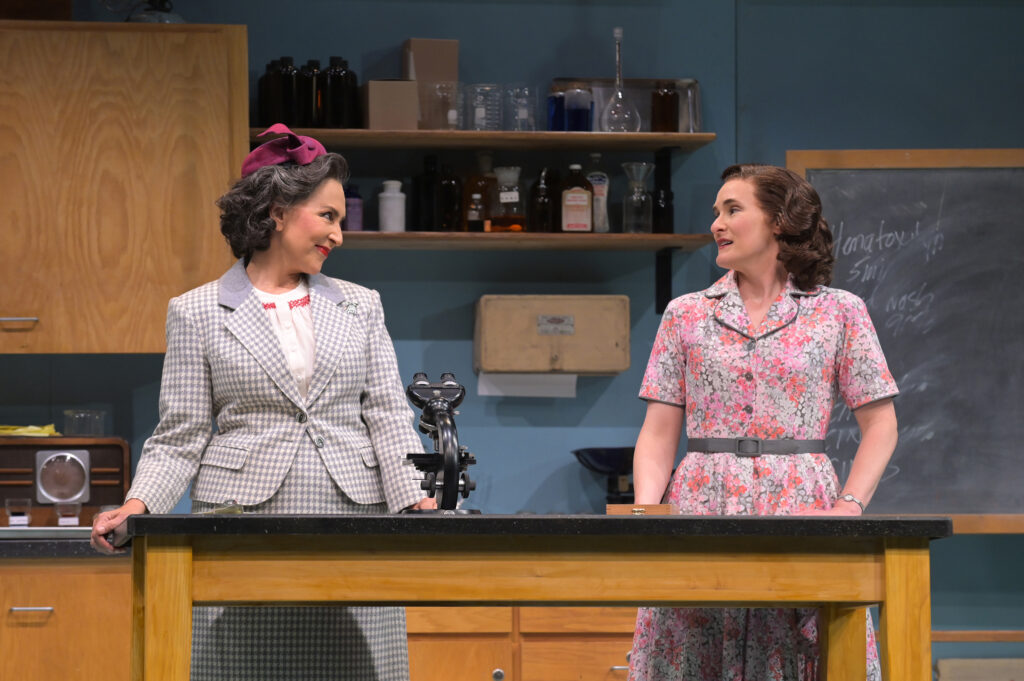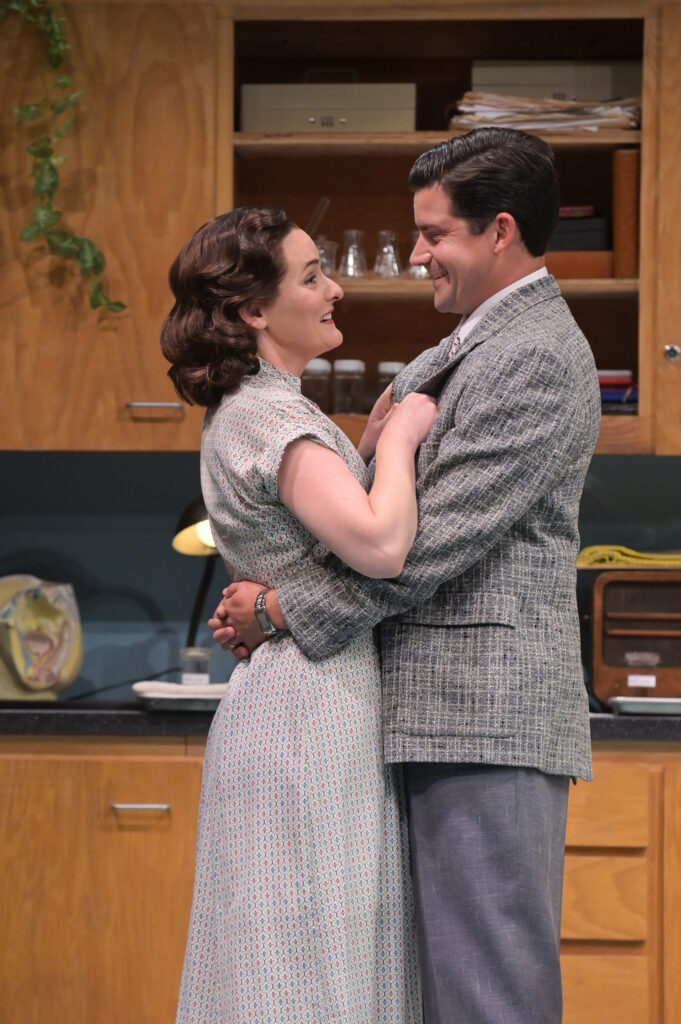By Joanne Engelhardt
San Jose-based playwright/filmmaker Madhuri Shekar tackles the real-life dilemma of saving bees in Queen, running through March 31 at Lucie Stern Theater in Palo Alto. The “queen” here is the queen bee in a bee colony, voraciously devoured by worker bees.
Is this enough to absorb an audience for 90+ minutes? In this reviewer’s opinion: yes and no.
That said, four fine actors are nearly first-rate; Shekar incorporates a lot of humor into her dialogue to counter the heaviness of scientific research and supposition. Just when it gets a bit too much on the statistics side, Shekar slips in a joke about bees or science to loosen things up.
… Her grandfather keeps setting up blind dates for her, most of whom she finds loathsome…
Queen’s premise is unquestionably true: There’s been a disheartening drop in the number of bees over the past decade. As research assistant Sanam Srinivasan (Uma Paranjpe) points out, “The human race depends on bees.”
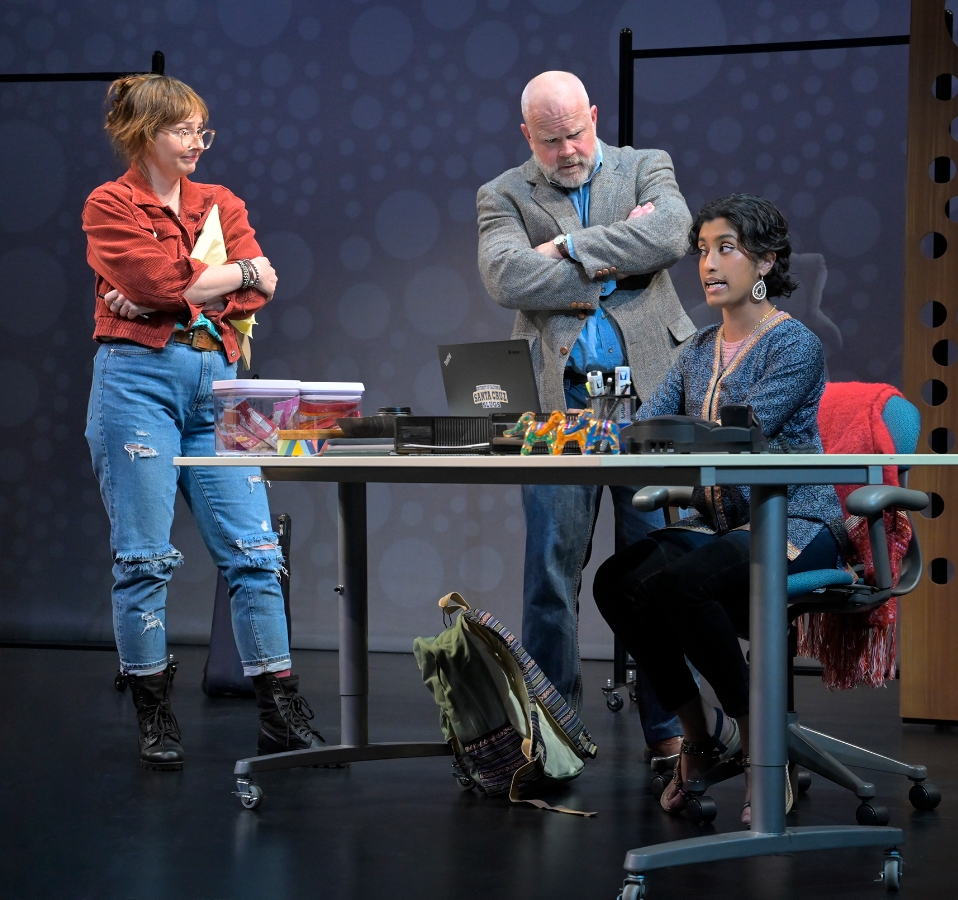
That’s why she and her Ph.D. research partner, Ariel Spiegel (Kjerstine Rose Anderson), have been doggedly trying for years to figure out how to address the issue. They’ve concluded that a pesticide used by Monsanto has killed more than one billion bees. (That’s billion–with a “B.”)
They’ve meticulously done their research and, after eight years, are about to present their case at a conference scheduled a few days hence, then publish their research results in the prestigious scientific journal “Nature.” But the night before the conference they meet with their mentor and supervising professor, Dr. Philip Hayes (Mike Ryan). Sanam says she has discovered an error in coding which is causing the results to be off by a few percentage points.
That’s when a riff appears between Dr. Hayes and Sanam, with the professor telling her that the error is small and can be adjusted later, while Sanam emphatically declaring that she can’t present inaccurate data.

There are also a couple of side stories: One involves Ariel’s decision to take six months off from her research to have a child (a daughter often heard crying but never seen). Another involves Sanam whose Indian parents are concerned that she may not marry and give them grandchildren. Her grandfather keeps setting up blind dates for her, most of whom she finds loathsome until she meets Arvind, an Indian American financier who thinks her devotion to her bee research is charming and admirable.
Deven Kolluri plays Arvind as a confident, handsome rogue who eventually wins over Sanam for a romantic night – but she has no intention of following him to New York where he lives.
Playwright Shekar has set her play in a nearby location (UC Santa Cruz), which helps theatregoers relate to the story. But it might not be a winner for everyone–because while it has humor, this reviewer found it a tad heavy on the scientific side. Director Miriam A. Laube ensures that the play moves along quickly, especially when the methodical discourse gets a bit… murky.
All four actors bring unique personalities to their roles– with a couple personal asides: IMHO, Paranjpe speaks a shade too fast and not quite loud enough. Also, Ryan tends to become a bit too…well, bombastic when he’s telling his research assistants to present their data –-inconsistent or not.
Among the clever subtleties of Queen is scenic designer Nina Ball’s proscenium and panels, pockmarked with cut-out circles that give the appearance of a beehive. The panels are quickly moved in and out as lead deck crew Megan Hall and her team soundlessly move set pieces for different scenes. Kent Dorsey’s lighting design is excellent, as is James Ard’s sound.
As with the flawed data, this reviewer is of the mind that this play needs a bit of work to make it as good as it could be. That said, for those more scientifically inclined, the play will give them food for thought.
A joint collaboration between TheatreWorks Silicon Valley and EnActe, located in Sunnyvale and Texas. the entire production runs a scant 100 minutes without intermission.
-30-
 Aisle Seat Executive Reviewer Joanne Engelhardt is a Peninsula theatre writer and critic. She is a voting member of the SF Bay Area Theatre Critics Circle (SFBATCC). Contact: joanneengelhardt@comcast.net
Aisle Seat Executive Reviewer Joanne Engelhardt is a Peninsula theatre writer and critic. She is a voting member of the SF Bay Area Theatre Critics Circle (SFBATCC). Contact: joanneengelhardt@comcast.net
| Production | Queen |
|---|---|
| Written by | Madhuri Shekar |
| Directed by | Miriam A. Laube |
| Producing Company | TheatreWorks Silicon Valley and Entre Acts |
| Production Dates | Thru Mar 31st |
| Production Address | 1305 Middlefield Road Palo Alto, CA 94301 |
| Website | www.theatreworks.org |
| Telephone | (877) 662-8978 |
| Tickets | $42- $82 |
| Reviewer Score | Max in each category is 5/5 |
| Overall | 3.5/5 |
| Performance | 3.5/5 |
| Script | 3.25/5 |
| Stagecraft | 3.75/5 |
| Aisle Seat Review Pick? | No. |


